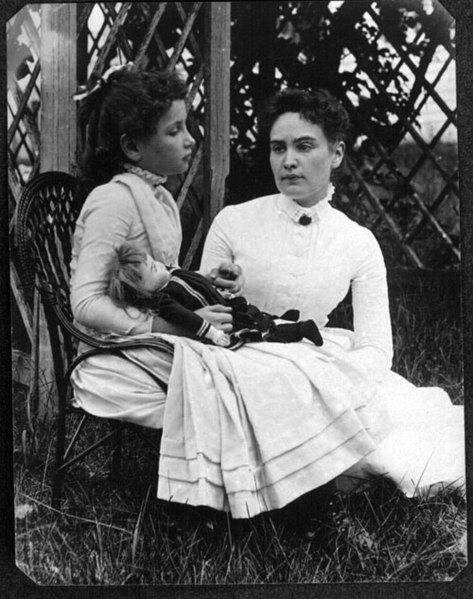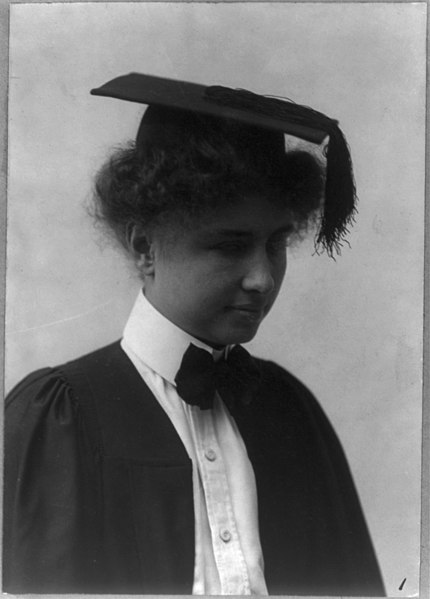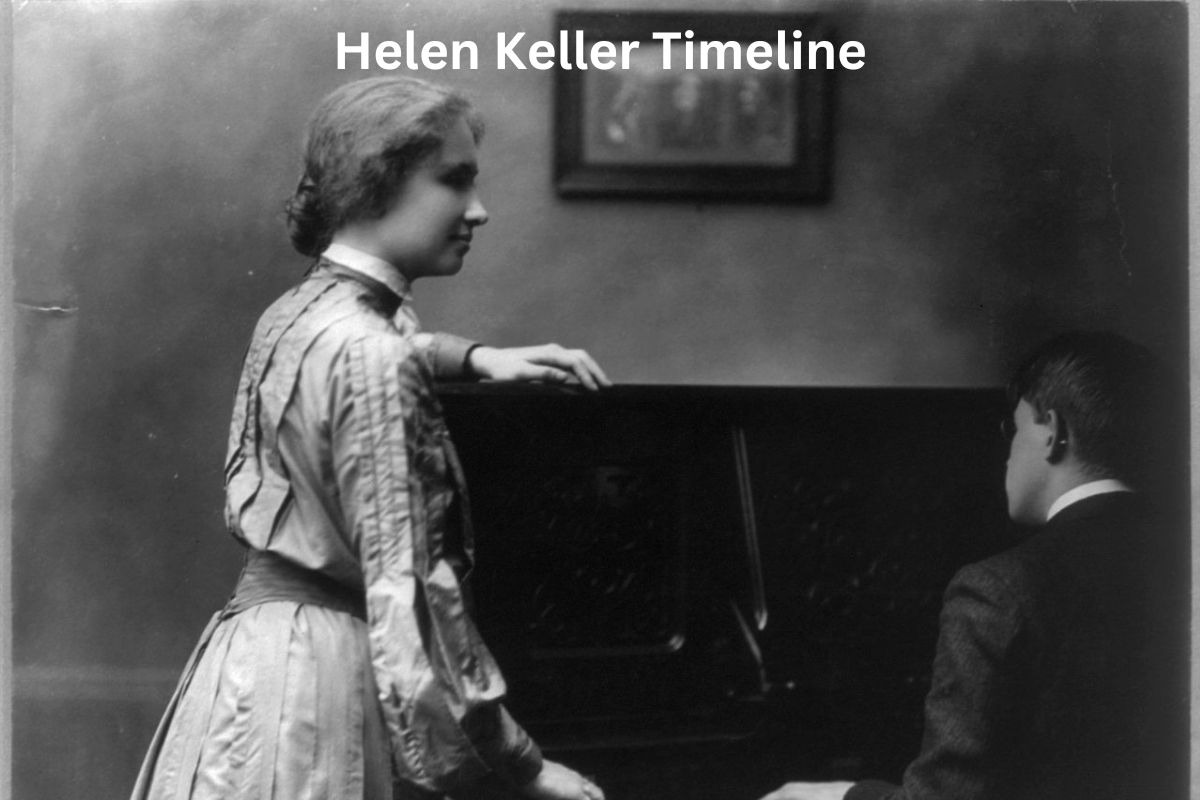Helen Keller, born in 1880, overcame deafness and blindness from a young age and went on to become an inspirational figure known for her remarkable achievements.
With the guidance of her teacher Anne Sullivan, she learned to communicate and went on to graduate from Radcliffe College.
Keller’s advocacy, writings, and contributions to organizations like Helen Keller International left a lasting impact on disability rights and social causes.
Her life serves as a testament to the power of determination and education in the face of adversity.
| Year | Event |
|---|---|
| 1880 | Helen Keller is born in Alabama, USA. |
| 1882 | Becomes deaf and blind at 19 months due to illness. |
| 1887 | Anne Sullivan becomes her teacher and teaches her to communicate. |
| 1887 | Breakthrough moment – Helen connects words with objects. |
| 1890 | Learns to speak with a speech teacher’s help. |
| 1904 | Graduates from Radcliffe College. |
| 1905 | Her autobiography, “The Story of My Life,” is published. |
| 1915 | Tours to raise funds for the blind. |
| 1920s-1930s | Advocacy for disability rights and other social causes. |
| 1925 | Helps found Helen Keller International. |
| 1961 | Suffers strokes, health declines. |
| 1968 | Helen Keller passes away at the age of 87. |
Timeline of Helen Keller
1880: Helen Keller is born in Alabama, USA
Helen Keller was born on June 27, 1880, in Tuscumbia, Alabama, USA. At birth, she was a healthy child without any disabilities.
1882: Becomes deaf and blind at 19 months due to illness
At the age of 19 months, tragedy struck when Helen fell seriously ill, likely due to scarlet fever or meningitis. This illness left her both deaf and blind, cutting her off from the world of communication and understanding.
1887: Anne Sullivan becomes her teacher and teaches her to communicate
In March 1887, Anne Sullivan, a dedicated and skilled teacher who herself was visually impaired, entered Helen Keller’s life. Anne started working with Helen as her teacher, aiming to find a way to break through the isolation caused by Helen’s dual sensory impairments.

1887: Breakthrough moment – Helen connects words with objects
One of the most pivotal moments in Helen Keller’s life occurred in March 1887. While at a water pump, Anne Sullivan spelled the word “water” into Helen’s hand while simultaneously letting water flow over her other hand.
Also Read: Facts About Helen Keller
This “miracle” connected the tactile sign for water with the actual sensation, leading to Helen’s realization that everything had a name. This breakthrough opened the doors to communication and understanding for Helen.
1890: Learns to speak with a speech teacher’s help
Helen’s education progressed under the guidance of Anne Sullivan and others. In 1890, she began learning to speak.
With the help of Sarah Fuller, a speech teacher, Helen learned to articulate words by feeling the vibrations of speech through Sarah’s throat and jaw.
Also Read: Accomplishments of Helen Keller
Although her speech was not as clear as that of a person without disabilities, it allowed her to communicate with those who understood her.
1904: Graduates from Radcliffe College
In 1904, Helen Keller achieved a remarkable milestone by graduating magna cum laude from Radcliffe College, an affiliate of Harvard University. Her graduation marked an extraordinary accomplishment for someone who was both deaf and blind.
This achievement not only highlighted her intelligence and determination but also served as an inspiration to people everywhere facing challenges.

1905: Her autobiography, “The Story of My Life,” is published
In 1905, Keller’s autobiography, “The Story of My Life,” was published. Co-written with Anne Sullivan and others, the book detailed her struggles, breakthroughs, and triumphs.
The story of how she overcame her disabilities to learn language and achieve academic success captivated readers and brought international attention to her journey.
1915: Tours to raise funds for the blind
Around 1915, Helen Keller and Anne Sullivan embarked on a tour of vaudeville theaters across the United States. Their purpose was to raise funds for the American Foundation for the Blind, which Helen had helped establish.
Through these performances and lectures, Keller’s personal story and her advocacy for people with disabilities reached a wider audience, raising awareness and support for the cause.
1920s-1930s: Advocacy for disability rights and other social causes
Throughout the 1920s and 1930s, Helen Keller expanded her advocacy efforts beyond disability rights. She became a vocal advocate for various social causes, including women’s suffrage, workers’ rights, and pacifism.
Her unique perspective and powerful communication skills made her a sought-after speaker and writer on these topics, amplifying her impact on broader societal issues.
1925: Helps found Helen Keller International
In 1925, Helen Keller was instrumental in founding Helen Keller International, an organization dedicated to combating blindness and malnutrition around the world.
The organization’s mission was a testament to her commitment to improving the lives of others with disabilities and those in need.
1961: Suffers strokes, health declines
In 1961, Helen Keller’s health began to decline due to a series of strokes. The strokes further weakened her already fragile physical state, and she faced new challenges in her later years.
1968: Helen Keller passes away at the age of 87
On June 1, 1968, Helen Keller passed away peacefully in her sleep at her home in Easton, Connecticut, at the age of 87. Her passing marked the end of an era, but her legacy continued to inspire generations to come.
These events showcase the diverse aspects of Helen Keller’s life—her personal achievements, advocacy efforts, and impact on various social causes. Her journey from a young child isolated by disabilities to a globally recognized symbol of determination and resilience remains an inspiration to people worldwide.
